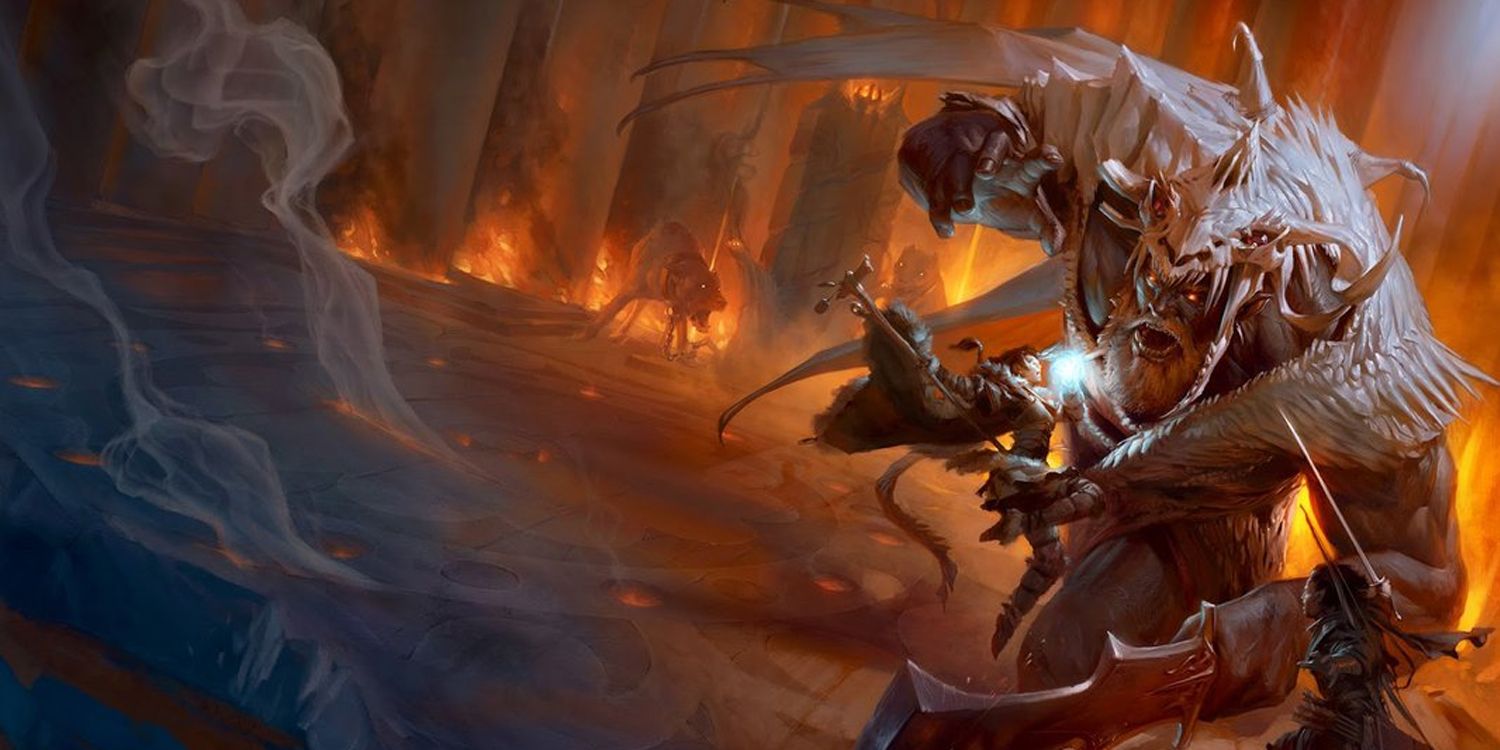In Dungeons & Dragons, players get the chance to participate in a group storytelling experience and live out heroic fantasies. One of the major appeals of the game is that when a player succeeds in performing a task in-game, it feels like they actually accomplished something themselves. A good D&D game relies on the fulfillment of this sensation, which is the result of a Dungeon Master properly adjudicating a concept called "Player Agency."
What Is Player Agency?
Player agency is fairly easy to explain, but a little harder to implement. Chiefly, agency is achieved when a player has direct control over their character's decisions. The simplest example would be a fighter declaring they will attack a goblin, then doing so without the DM interfering.
In addition, an important aspect of player agency is the notion that the decisions made by the player will have direct consequences within the game world. Going back to that fighter, after they successfully defeat the goblin, they are now able to free the nearby townsfolk who had been kidnapped. Had they not defeated the goblin, or not faced it at all, the townsfolk would still be held captive or worse -- killed.
Lastly, player agency is maintained when the players have enough prior information to deduce the possible outcomes and consequences for a particular course of action. This allows the player to make a judgment call based on who their character is and how they would respond.
For example: A fighter overhears talk in the local tavern of the missing townsfolk and some hunters have seen goblins lurking in the woods nearby. The player's fighter is good-aligned and now knows there are innocents in danger from evil goblins. Leaving the kidnapped townsfolk to their fate is contrary to the fighter's ideals, so they choose to pursue the goblins.
How To Find Balance
While it may be tempting to allow player agency to dictate all aspects of a game, the truth is that running a Dungeons & Dragons campaign in such a fashion runs the risk of going off the rails very quickly -- especially for newer DMs who aren't comfortable deviating too far from the adventure they have prepared. A game where players control absolutely everything can also lack tension. If they are sure of everything and certain they will succeed, the narrative can quickly lose steam.
Player agency is an important part of a DM's toolset, but it is not a hard and fast rule. In fact, there are times where violating player agency and forcing certain actions or consequences is a necessary part of moving a story forward. It's a tricky line to walk, but understanding when to let the players have free reign and when to force their hand is vital in maintaining an exciting game.
Violating player agency too often or harshly runs the risk of a game feeling unfair or railroaded. Most players quickly lose interest in games like that.
For example, say the fighter is now leaving the goblin camp, but fails their passive perception and doesn't notice the other goblin lurking in the shadows, waiting to ambush. In this case, the player doesn't have all the information to make an informed decision. If they had spotted the goblin, they would certainly not allow themselves to be ambushed. Since the fighter failed, the hidden goblin gets the jump on the player and now a new, exciting encounter begins.
Another great example of violating player agency effectively is through the clever use of various spells. A character who fails their save against an evil wizard using Dominate Person is now forced to attack an ally on their next turn. The player has no agency in that next turn, so they must follow the dictates of the DM. However, if used fairly in an encounter, this now raises the tension amongst the party as they must subdue their ally while still contending with the spellcaster.
Understanding how and when to enact player agency is a great skill for DMs to possess and can ensure that their players always feel involved and vital to the story.



